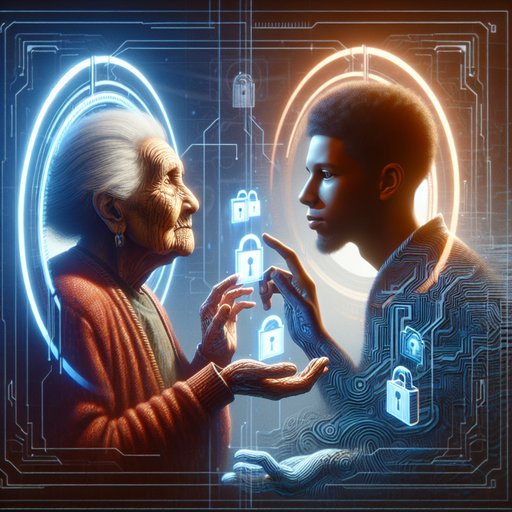
In an era of rampant misinformation, older generations are frequently cast as both victims and culprits—a narrative that overlooks the nuanced realities of digital literacy across age groups. Meanwhile, privacy experts are heralding user personalization as a revolutionary approach to safeguarding personal information online, arguing that it offers a pathway to a more secure digital experience for all. As we explore this frontier, we must consider how personalization might uniquely empower older users while addressing the broader societal implications for misinformation management.
The concept of privacy has historically meant keeping personal information shielded from public view. In the digital age, however, privacy is undergoing a transformation. According to a recent article by a privacy expert, user personalization is increasingly seen as the future of privacy [1]. By tailoring online experiences to individual preferences, personalization promises to protect users by reducing the amount of publicly available data and thereby limiting exposure to potential threats.
This approach, while promising, raises questions about how different generations interact with technology and how personalization can be implemented effectively to bridge generational divides. Older adults, often less familiar with digital tools, are particularly vulnerable to misinformation. They may lack the digital literacy necessary to navigate the complexities of online environments, making them susceptible to scams and false information. Yet, it's not just a lack of understanding that puts older generations at risk; it's also the rapid pace of technological change that leaves them struggling to keep up.
This vulnerability is frequently exploited in narratives blaming them for the spread of misinformation, ignoring the systemic issues at play. Personalization could serve as a buffer against these vulnerabilities by offering tailored content that aligns with verified information and trusted sources. By focusing on personalization, we can create a more controlled online environment where the exposure to misleading content is minimized. The potential for personalization to provide a bespoke digital experience means that older users can engage with technology in a way that feels intuitive and secure, reducing the cognitive load associated with deciphering complex digital landscapes.
The scapegoating of older generations for misinformation fails to acknowledge the broader context in which it occurs. Misinformation is a societal issue that affects all age groups, and its dissemination is facilitated by algorithms that prioritize sensationalism over truth. Younger generations, though more digitally literate, are not immune to these algorithms, which can create echo chambers that reinforce false narratives. A cross-generational approach that leverages personalization could help dismantle these echo chambers by promoting diverse and credible content.
Ethically, the implementation of personalization must be approached with caution. Privacy experts emphasize the importance of transparency and user control, ensuring that individuals understand how their data is being used and have the ability to opt in or out of personalized services [1]. This is particularly important for older adults, who may be wary of sharing personal information online. Building trust through clear communication and education about personalization's benefits and safeguards can foster greater acceptance and engagement across all age groups.
Media literacy initiatives that span generations are crucial in this landscape. By equipping all users with the skills to critically assess information, we can mitigate the impact of misinformation and promote a healthier digital ecosystem. Programs that focus on teaching digital skills, critical thinking, and the ethical use of technology can empower individuals to navigate the digital world confidently and responsibly. As we look to the future, the promise of personalization lies in its potential to create a more inclusive and secure digital space.
By prioritizing user-centric designs that cater to the diverse needs of different generations, we can foster a digital environment where privacy is respected, and misinformation is curbed. The path forward requires collaboration across sectors to develop solutions that are both technologically advanced and socially conscious. In doing so, we can ensure that all generations are equipped to thrive in the digital age, bridging gaps and building a more informed society.
Sources
- I am a privacy expert and this is why I believe user personalization is the future of privacy (TechRadar, 2025-07-23T05:38:42Z)























































